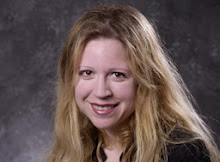Independence Day is one of those kick-back, crack-open-a-beer kind of holidays, so I could think of no better way to celebrate than with a jaunt over to the Richard Nixon Presidential Library in Yorba Linda, Calif.
After all, it's a day to commemorate our democracy, so why not visit the birthplace of the man whose imperial secrecy came closest to subverting that tradition in the last half-century?
As my editor says, I'm a nerd.
Of course, after strolling through the orange-tree-lined grounds, memories of the Watergate Hotel break-in, illegal wiretapping and enemies list seem to melt under the southern California rays.
Touring Nixon's snow-white boyhood home humanizes the image of a glowering, unshaven 37th president as it's meant to, providing a window into his austere Quaker upbringing as the second of five boys.
An accordionist, violinist and pianist, he made up for his lackluster skill with undying determination, which would become the hallmark of his political career, starting as an upstart congressman fresh out of the Navy in World War II. And it was that quality Nixon unfortunately took to a paranoid extreme in the 1970s in his quest for a second spell in the Oval Office.
Like all presidential museums, this one provides a glossy, official history, beginning with a Nixon-approved biographic film in which he serenely airs long-standing beefs with the liberal media and vote stealing in Illinois during his 1960 White House run.
Following the golden rule of public relations rehabilitation, the museum collection starts with laudatory coverage of Nixon's death in 1994, complete with tearful letters from schoolchildren around the globe ("Nixon's still the one.")
There are the usual pastel beaded first lady gowns, bumper stickers with now-implausible slogans ("Democrats for Nixon") and the formulaic Great Man historical synopses next to correspondence and photographs.
But the library also is a careful reminder of Nixon's diplomatic expertise in opening the door to China and establishing détente with the Soviet Union. One wishes he would have employed that talent far earlier in Vietnam, as he had promised, and spared tens of thousands of lives.
The final chapter of Nixon's brilliance and ambition gone awry is missing. A revamped Watergate exhibit opens next week, including newly released documents and analysis critical of the former president.
Although the section does not appear to be as extensive as the Gerald R. Ford Library's exploration of the Nixon pardon, it avoids the knee-jerk temptation to whitewash history. One wonders what the Iraq war exhibit will look like at President George W. Bush's future library.
Years ago, I was a history major lucky enough to live 10 minutes from the birthplace of Herbert Hoover in West Branch, Iowa. I know many of my neighbors didn't even know that gem of a museum existed.
After delving into Hoover's isolationist and individualist policies, I remained unconvinced he could have yanked America out of the Great Depression, just as I failed to be moved by Nixon's rebuff of Lyndon Johnson's Great Society programs. But I did walk away with a greater appreciation of both men and their motivations.
You don't get to pick your history. You can only learn from it — and you never will by only reading about those with whom you agree.
So it did my heart good to see so many families pour into the Nixon Library on the Fourth of July before heading to the beach or ball game. One silver-haired Marine held his hand over his heart the whole time. A mother struggled to diplomatically explain to her 9-year-old daughter why we still have to honor the only president to have resigned the office.
Democracy is messy. Our history is terrible and triumphant.
There are no easy answers. What's important is that enough people keep asking questions.
Saturday, July 7, 2007
History offers real fireworks on the 4th
Labels:
Gerald Ford,
Herbert Hoover,
history,
Richard Nixon,
Vietnam War
Subscribe to:
Post Comments (Atom)

No comments:
Post a Comment